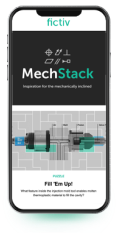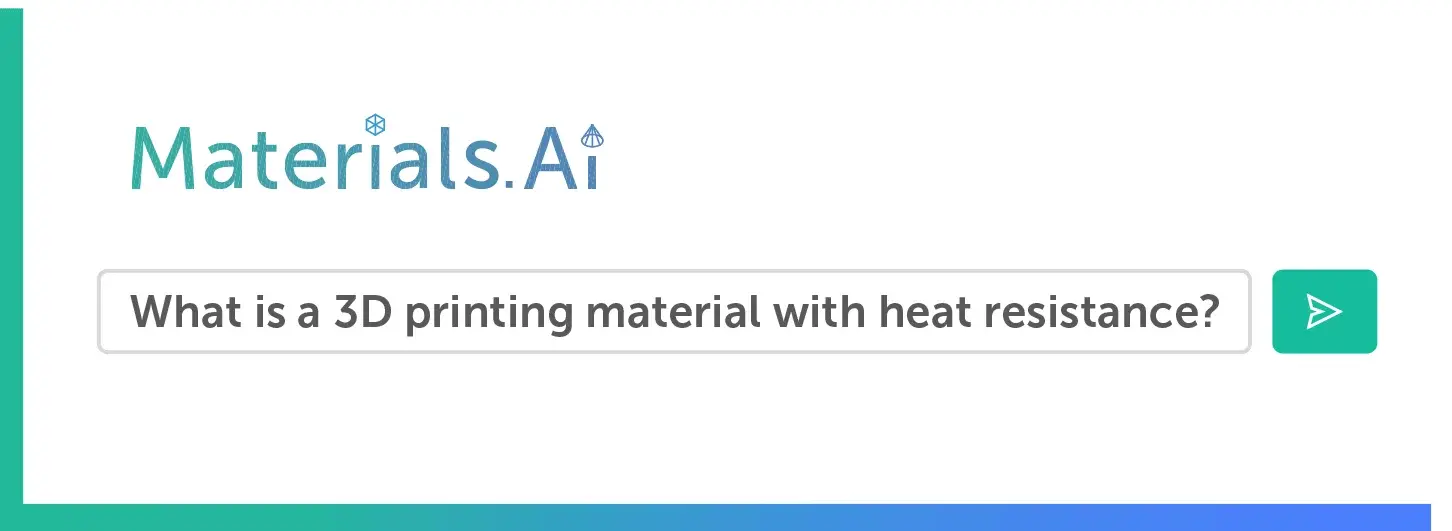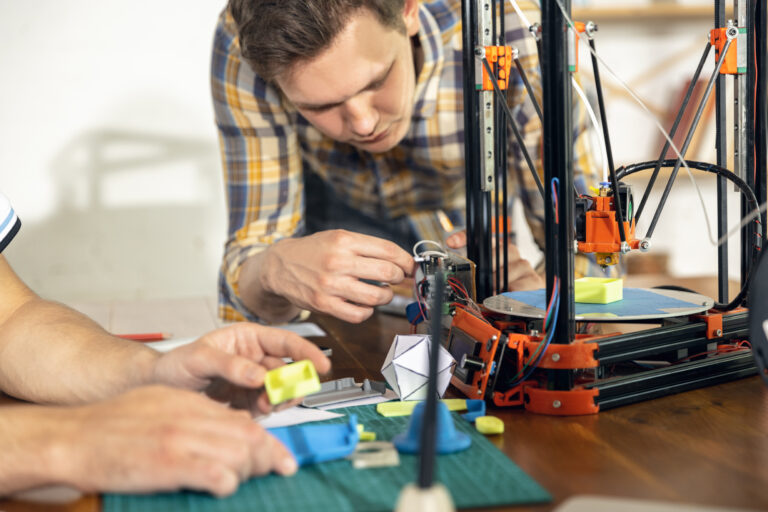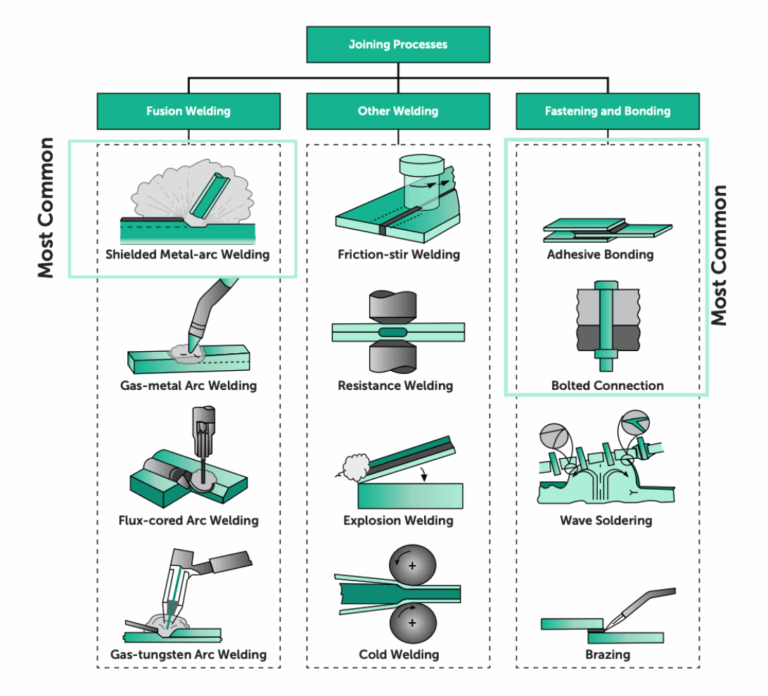Time to read: 5 min
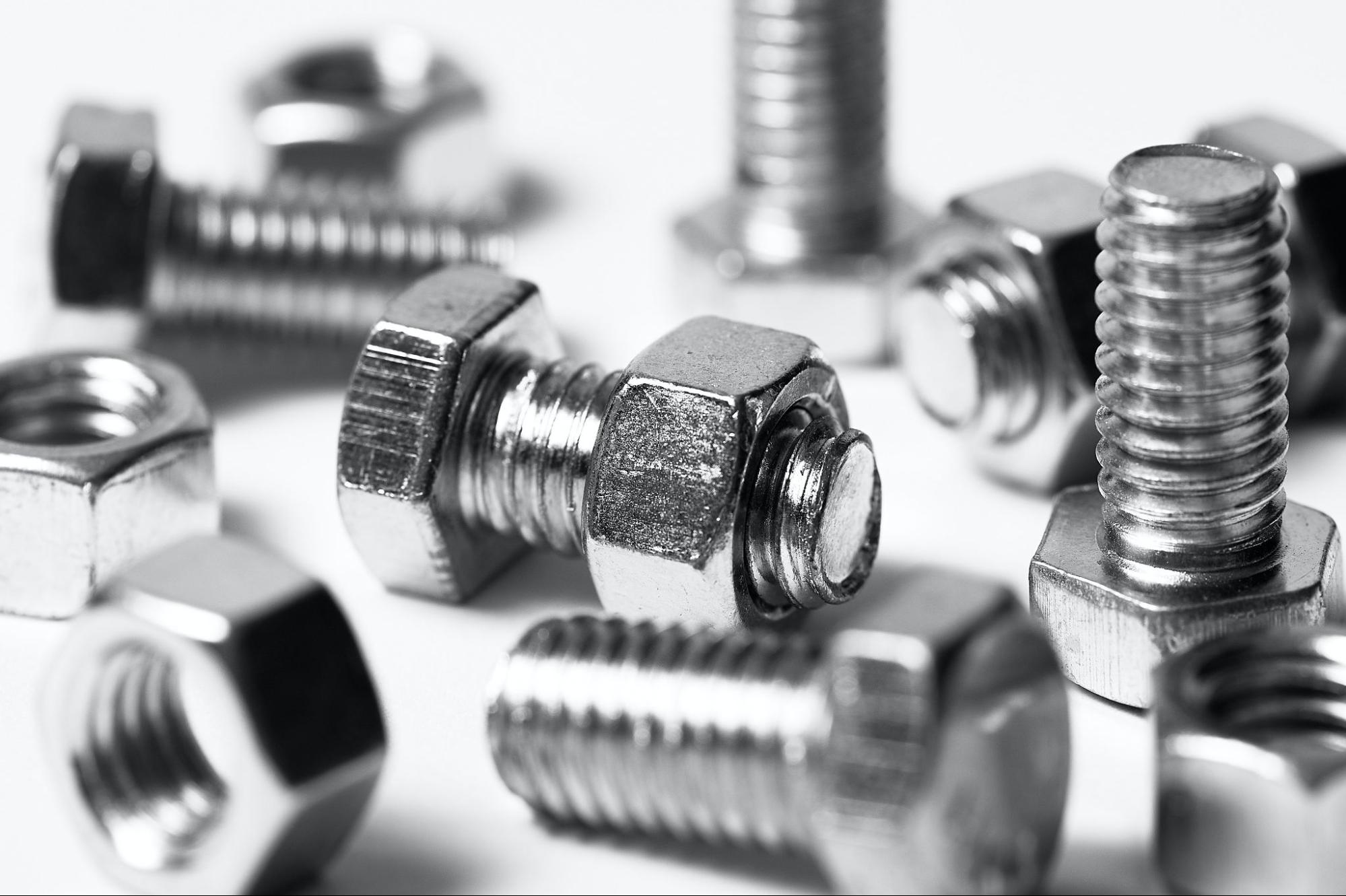
Fasteners are the unsung heroes of the automotive industry. Responsible for supporting engines, mounting bumpers, securing wheels rotating at high speeds, and attaching interior trim, vehicles often have more than 3,500 fasteners keeping cars, trucks and SUVs together. Choosing the right fasteners for each application requires balancing application requirements, cost, safety, lifespan, and serviceability.
Automotive fasteners come in many different styles, variations, and materials. With so many different fasteners and many auto manufacturers using different kinds, it can be difficult to be familiar with all of the available options. This article is an introduction to all the different types of automotive fasteners.
What are Automotive Fasteners?
Most cars have over 30,000 small parts, many of which are fasteners that hold all of the other components together. Fastener is a generic term that covers an incredible variety of parts used to clamp, join, and attach components throughout an automobile. While they don’t get much time in the limelight, without fasteners, there would be no automobiles.
Fasteners are typically made from steel, aluminum alloys, or plastic. Metal fasteners are durable, reusable, and applicable for heavy loads. These fasteners must provide the clamping force required to keep components together while resisting shear and other loads that occur during a vehicle’s operation — no one wants a bumper to fall off when hitting a pothole, right?
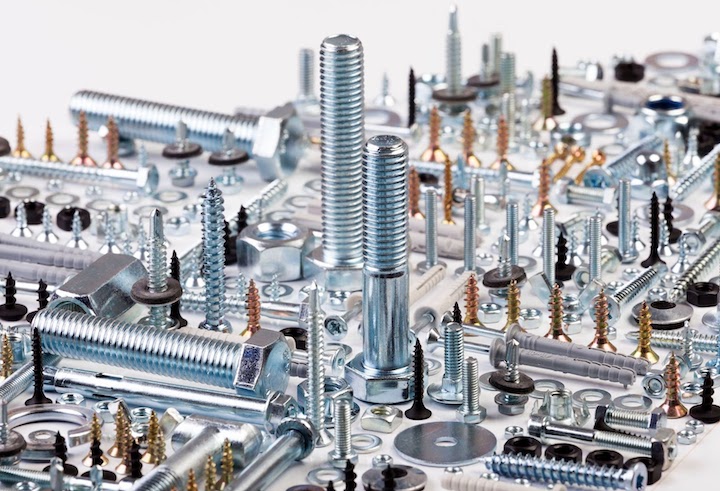
Fasteners have to work not only when the car is fresh from the factory, but also many years down the road. Fasteners must be designed for longevity. Surface finishing of metal fasteners — such as galvanization or anodizing for rust protection — can improve their performance characteristics.
Plastic fasteners are not as strong as their metal counterparts, but are significantly cheaper. Often made from vinyl, plastic fasteners are designed as cheap, single-use fasteners that help reduce the overall cost of a vehicle.
The Most Common Automotive Fasteners
When it comes to automotive fasteners, there’s no shortage of types and variations. Knowing the available options is a great first step in finding the right fastener for your application or for finding alternatives to fasteners already in use. Here are some of the most common automotive fasteners:
Nuts
Used to clamp threads, nuts have internal, female threads that allow bolts or threaded rods to be threaded into the nut. While the hex nut is the most popular, other types of nuts exist that provide additional features.
Nylon-filled lock nuts are one variation that helps to keep nuts in place, even in conditions with a lot of vibration. Other common types of nuts include cap nuts, barrel nuts, castle nuts, flange nuts, and knurled nuts. In general, nuts are used:
- To secure other fasteners like bolts and screws
- with threaded studs
- As spacers
- In conjunction with locking devices
- As adjusting devices.
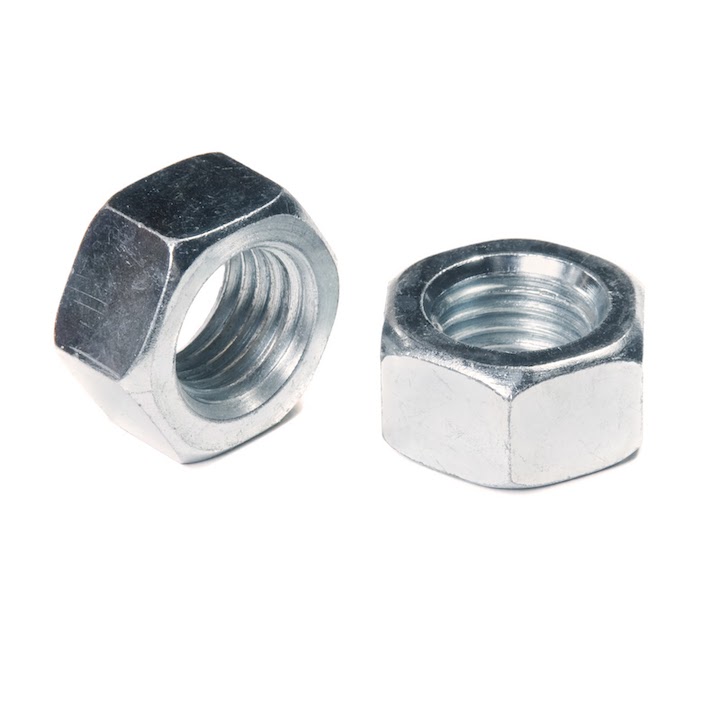
Bolts
Bolts are externally threaded and are used in conjunction with nuts to attach two or more components together. They have a head of varying shapes, a threaded portion, and sometimes an unthreaded shank.
Bolts are non-tapering and can be partially or fully threaded. They come in various lengths and sizes with smooth, unthreaded regions providing higher abrasion resistance and more precision dimensions. Common types of bolts include carriage bolts, hex flange bolts, and place bolts. Bolts are versatile and work well for non-permanent fastening and high load carrying.
Lock Washers
Not all washers are fasteners, but certain variations like the lock washer do, in fact, fasten. Lock washers have special features like serrations, split ends, or bent tabs that are designed to prevent the fastener from loosening.
Lock washers work by providing a spring force that pushes between the head of the bolt and the component being fastened. They’re commonly used with bolts and nuts to provide additional security and prevent unintended loosening from vibration and thermal fluctuations.
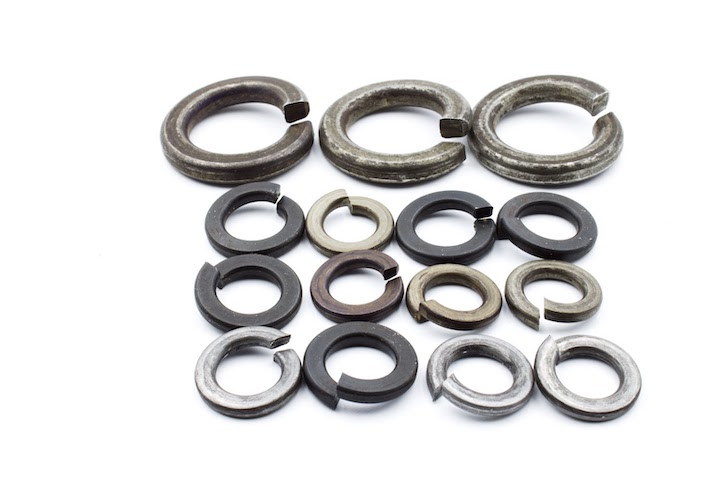
Clips
For positioning of trim and for holding panels in place, clips are hard to beat. Most clips function similarly to drywall anchors by being flexible enough to squeeze through a pre-drilled hole and then expanding once through. Clips do a great job of holding components in place, but special tools are required to remove the clips without damage.
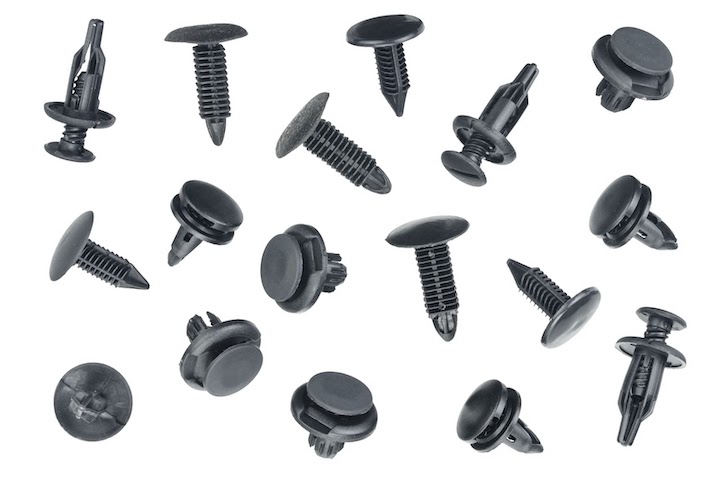
Studs
Looking and operating like threaded bars, studs are often permanent fasteners welded or molded into components. Studs function similarly to bolts and can have components like nuts threaded onto them. For automotive applications, wheel studs are the most common example.
Pins
Sometimes components don’t need to be fixed in place, but need to be constrained in certain dimensions instead. Pins allow for some movement in some dimensions, while restricting movement in others. Common pin types include clevis pins, cotter pins, and linchpins.
Rivets
Rivets are single-use fasteners made from plastic or metal that firmly hold two components together. They’re quick and easy to use and provide extremely strong connections. Rivets are typically pushed through pre-drilled holes in the components to be joined, then they’re expanded with a special tool. Typical rivet types include blind rivets, tubular rivets, split rivets, and solid rivets.
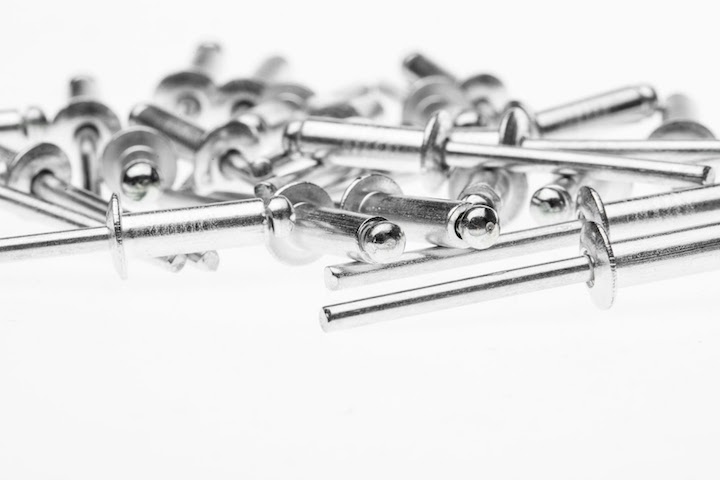
Screws
While not typically compatible with nuts, screws are among the most common fasteners for securing components. The shaft of a screw is usually tapered so that the force of the connection increases as the screw is inserted. Screws can be self-tapping or can mate with threaded holes. A large assortment of screw types exist including:
- Hex screws
- Machine screws
- Countersunk head screws
- Self-tapping screws
- Coach screws
- Pan head screws
- Cap head screws
Specialty Automotive Fasteners
While many of the previous fasteners are used in many industries, the automotive industry also has a wide selection of specialty fasteners. Specialty fasteners are designed and tested for specific automotive applications to meet the requirements for different manufacturers — these include captive nuts, rivet nuts, panel clips, U-nuts, J-nuts, and push-in plastic fasteners.
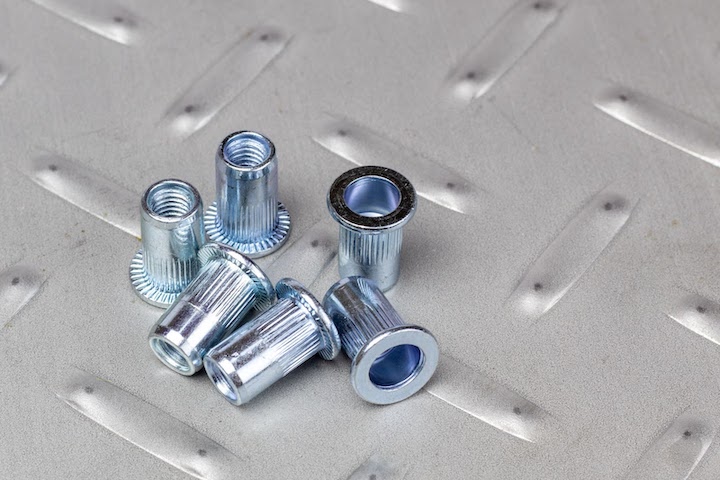
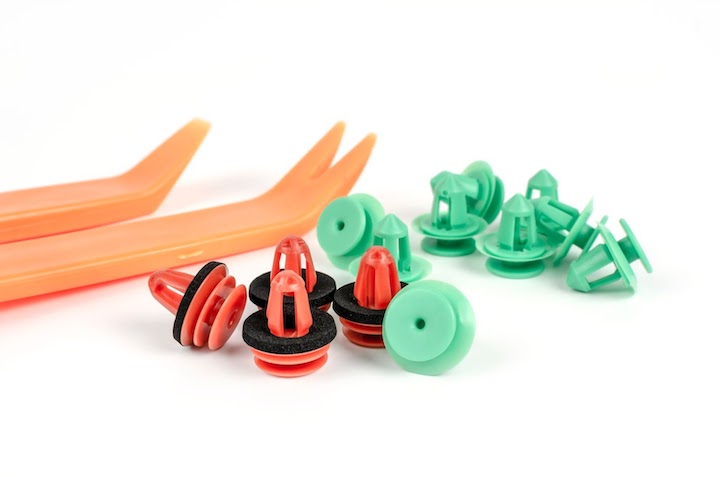
Too Tight or Just Right: Torque Required for Fastener Installation
Torque is the amount of force used when tightening a fastener, and getting the torque just right is critical: too little and the fastener won’t hold, too much and the fastener will fail. Proper torque allows the fastener to perform as designed without risking premature failure.
Three key parameters determine fastener performance:
- Coefficient of Friction – Surfaces dragged against one another generate static and kinetic friction forces.
- Bearing Surface – How the amount of surface area and roughness affects friction.
- Torque-Tension – Fasteners generate tension in the connection as a function of torque applied to the fastener. Proper input torque is critical for proper clamping tension.
Choosing the Right Fastener Material
Different automotive applications require different material properties to achieve success. Choosing the right material minimizes cost and weight while ensuring optimal performance. Some fasteners can be made from cheaper, one-time-use plastics, whereas other fasteners may need to be stronger or reusable. Understanding the available options makes it easier to find the right fastener for any application.
Automotive fasteners include a wide range of different types, styles, and materials, each with its own advantages and disadvantages. In the competitive and highly regulated automotive industry, selecting the right fastener means carefully balancing safety, cost, application requirements, and serviceability. Getting the right fasteners is key to keeping vehicles safe and performing as designed.
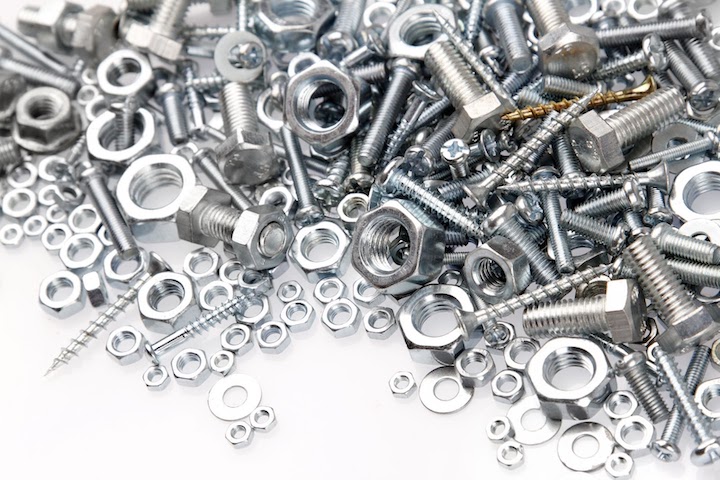
Fictiv – Complex Parts at Ridiculous Speeds!
For all your CNC machining and automotive part needs, Fictiv has you covered. We’re experts at producing custom CNC machined tight tolerance parts, in a variety of materials, and we simplify custom part sourcing with intelligent, streamlined, automated workflows. Fictiv is your operating system for custom manufacturing that makes part procurement faster, easier, and more efficient.
Create an account and upload your part to see what our instant quote process, design for manufacturability feedback, and intelligent platform can do for you — we make complex parts at ridiculous speeds!







